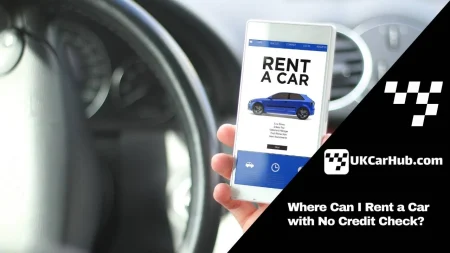Are you in the market for a new car and feeling overwhelmed by the multitude of options available? Choosing the right car can be a daunting task, especially with so many factors to consider. From the type of car to your fuel choice, desired features, brand loyalty, color preferences, and even opinions on autonomous vehicles – there’s a lot to think about. In this blog post, we will delve into the preferences and opinions of UK consumers when it comes to these various aspects of car ownership. So, if you’re curious about sedan, SUV, or hatchback preferences, brand loyalty, fuel choices, desired features, color preferences, or opinions on autonomous vehicles, then keep reading!
Car Type Preference: Sedan, Suv Or Hatchback?
When it comes to choosing a car, personal preferences and opinions play a crucial role in the decision-making process. One of the first choices a car buyer must make is the type of car they want. In the United Kingdom, the most common options available are sedans, SUVs, and hatchbacks. Each of these car types has its own unique features and advantages, making the decision a matter of personal preference.
Sedans are known for their sleek and sophisticated design. They offer ample legroom and trunk space, making them ideal for individuals or small families. Sedans generally provide a smooth and comfortable ride, suitable for both city driving and long-distance journeys. Many people appreciate the refined and elegant look of sedans and prefer them for their professional and classy appearance.
SUVs, on the other hand, are favored by those who require more space and versatility. Sport Utility Vehicles offer a higher seating position, giving the driver and passengers a clear view of the road ahead. SUVs are known for their larger cargo capacity, making them perfect for families or individuals who frequently carry heavy loads. Moreover, SUVs are often equipped with advanced safety features and have better off-road capabilities, appealing to adventurous drivers.
Hatchbacks combine the versatility of SUVs and the compact size of sedans. With their spacious interiors and folding rear seats, hatchbacks provide a practical solution for those who need extra cargo space. Hatchbacks are renowned for their fuel efficiency, making them an economical choice for daily commuting. Additionally, their smaller size allows for easier parking, which is advantageous for drivers living in crowded urban areas.
| Car Type | Advantages |
|---|---|
| Sedan | Sleek design, ample legroom, and trunk space. Refinement and elegance. |
| SUV | Higher seating position, larger cargo capacity, advanced safety features, and off-road capabilities. |
| Hatchback | Spacious interiors, folding rear seats, fuel efficiency, and easy parking. |
Ultimately, the choice between a sedan, SUV, or hatchback depends on an individual’s specific needs and lifestyle preferences. Factors such as the number of passengers, cargo requirements, driving conditions, and personal style all contribute to this decision. It is essential to consider one’s daily usage, long-term plans, and budget before making a purchase. Consulting with automotive experts, test-driving different models, and thoroughly researching various car types can help potential buyers make an informed choice based on their personal preferences and opinions.
Brand Loyalty: Are Uk Consumers Loyal To Specific Car Brands?
Brand Loyalty: Are UK Consumers Loyal To Specific Car Brands?
When it comes to purchasing a car, personal preferences and opinions play a significant role in the decision-making process. In the competitive automotive industry, brands strive to build a loyal customer base that continuously supports their products. Brand loyalty is a fascinating phenomenon that reflects consumers’ trust and satisfaction with a particular brand.
In the United Kingdom, car brands have made significant strides to establish a loyal customer following. British consumers often develop strong emotional connections with certain car brands, influenced by factors such as reliability, performance, design, and even heritage. Let’s dive deeper into the subject of brand loyalty and understand the extent to which UK consumers exhibit loyalty towards specific car brands.
Factors Influencing Brand Loyalty:
1. Quality and Reliability: In a competitive market, consumers value reliability and build quality. Car brands that consistently deliver vehicles with high reliability rankings tend to attract loyal customers who trust their products. This trust is crucial, as it translates into repeat purchases and positive word-of-mouth recommendations.
2. Performance and Driving Experience: For car enthusiasts, the thrill of driving plays a pivotal role in their brand preference. UK consumers who prioritize performance often gravitate towards car brands renowned for their handling, acceleration, and overall driving experience. Brands that consistently deliver exhilarating driving experiences tend to cultivate a loyal customer base.
3. Design and Aesthetics: The visual appeal of a car can strongly influence a consumer’s brand loyalty. UK consumers often have specific design preferences, whether it is sleek and sporty or elegant and luxurious. Car brands that consistently produce vehicles that align with these preferences tend to capture the loyalty of consumers who value aesthetics.
Brand Loyalty in the UK:
Despite the vast array of car options available in the UK market, several car brands have successfully fostered strong loyalty among British consumers. Brands such as BMW, Mercedes-Benz, and Audi are often associated with prestige, luxury, and performance – characteristics that appeal to a specific consumer segment in the UK.
It is important to note that brand loyalty is not solely dependent on performance and design. Factors such as exceptional customer service, competitive pricing, and innovative technologies can also contribute to brand loyalty. Car brands that consistently deliver on these aspects are more likely to retain a loyal customer base.
However, brand loyalty is not a steadfast commitment. In an ever-changing market, consumers’ preferences and priorities can shift. New entrants with disruptive technologies or innovative designs can challenge the loyalty of even the most dedicated consumers.
In conclusion, brand loyalty is a complex and dynamic aspect of consumer behavior in the automotive industry. UK consumers do exhibit brand loyalty towards specific car brands, influenced by various factors such as quality, performance, and design. However, car brands must continue to innovate and meet evolving consumer expectations to maintain a loyal customer base in this fiercely competitive market.
| Car Brands | Remarks |
|---|---|
| BMW | Prestige, performance, and luxury |
| Mercedes-Benz | Exudes luxury and refinement |
| Audi | Renowned for its advanced technologies and design |
Fuel Choice: Petrol, Diesel, Hybrid Or Electric?
When it comes to choosing a car, one of the key decisions that consumers have to make is the type of fuel to opt for. In the UK, there are several options available including petrol, diesel, hybrid, and electric. Each of these fuel types come with their own set of advantages and disadvantages, making it crucial for car buyers to carefully consider their personal preferences and opinions before making a decision.
Let’s begin with petrol, which is the most commonly used fuel in the UK. Petrol engines are known for their smooth performance and wide availability. They also tend to be more affordable compared to other fuel types. However, petrol vehicles generally have higher CO2 emissions and lower fuel efficiency than their diesel counterparts. For environmentally conscious individuals, hybrid and electric cars offer a greener alternative.
Hybrid vehicles combine an internal combustion engine with an electric motor. This allows them to benefit from the fuel efficiency of an electric motor and the longer range of a petrol or diesel engine. Hybrid cars are seen as a good compromise between traditional combustion engines and electric vehicles, offering reduced emissions and improved fuel economy. However, they may require more maintenance due to the complexity of their dual powertrain.
| Fuel Type | Advantages | Disadvantages |
|---|---|---|
| Petrol | Smooth performanceWide availabilityAffordability | Higher CO2 emissionsLower fuel efficiency |
| Diesel | Higher fuel efficiencyGreater torqueLonger lifespan | Higher purchase pricePotential environmental impactReduced availability |
| Hybrid | Reduced emissionsImproved fuel economyRegenerative braking | More maintenanceHigher upfront costLimited electric range |
| Electric | Zero tailpipe emissionsLower energy costsReduced maintenance | Limited charging infrastructureShorter driving rangeHigher purchase price |
On the other hand, electric cars run solely on electricity and produce zero tailpipe emissions, making them the most environmentally friendly option. While they have a shorter driving range compared to traditional fuel vehicles, the increasing availability of charging infrastructure is helping to alleviate range anxiety for potential buyers. Electric vehicles also tend to have lower maintenance costs since they have fewer moving parts.
In conclusion, the choice of fuel for a car depends on various factors such as personal preferences, driving habits, and environmental concerns. Petrol and diesel remain popular choices due to their affordability and wide availability, despite their impact on air quality. Hybrid and electric vehicles offer greener alternatives, with hybrids being a middle ground option and electric cars being the most eco-friendly. Ultimately, it is important for consumers to weigh the pros and cons of each fuel type before making a decision that aligns with their values and priorities.
Desired Features: What Are The Must-Have Features In A Car?

When it comes to buying a car, everyone has their own personal preferences and opinions on what features are a must-have. With so many options available in the market, it can be overwhelming to decide which features are essential for your needs. In the UK, consumers have a variety of preferences when it comes to the desired features in a car.
First and foremost, safety features are a top priority for many car buyers in the UK. Features such as airbags, ABS (anti-lock braking system), and traction control are considered must-haves. These features provide peace of mind and ensure the safety of the driver and passengers in case of an accident.
In addition to safety features, comfort and convenience features are also highly desired. For example, electric windows, power steering, and cruise control are popular features that make driving a more enjoyable experience. The UK consumers often prioritize these features to enhance their comfort and convenience on the road.
- Furthermore, technology features have gained significant importance in recent years. Features like Bluetooth connectivity, touchscreen infotainment systems, and built-in navigation systems are greatly valued by consumers. These features allow for seamless integration with smartphones and provide easy access to music, navigation, and hands-free communication.
| Feature | Description |
|---|---|
| Keyless Entry | Allows the driver to unlock and start the car without using a key. |
| Automatic Emergency Braking | Uses sensors to detect potential collisions and automatically engages the brakes to prevent or mitigate the impact. |
| Adaptive Cruise Control | Adjusts the speed of the car to maintain a safe distance from the vehicle in front. |
| Blind Spot Monitoring | Notifies the driver of vehicles in their blind spots, reducing the risk of accidents while changing lanes. |
While these are some of the desired features in a car, it’s important to note that individual preferences may vary. Some consumers prioritize fuel efficiency and look for features such as start-stop technology or hybrid/electric drivetrains. Others may prioritize space and opt for features like foldable rear seats or a larger cargo area.
In conclusion, when it comes to desired features in a car, there is no one-size-fits-all answer. Each individual has their own preferences and opinions. Safety features, comfort/convenience features, and technology features are among the most sought-after by consumers in the UK. However, it’s essential for prospective car buyers to prioritize their specific needs and preferences when making a decision.
Color Preferences: Do Uk Consumers Have Specific Color Preferences For Cars?
In today’s blog post, we will delve into the topic of color preferences among UK consumers when it comes to cars. It is often said that the color of a car reflects a person’s personality and taste. Some individuals prefer vibrant and eye-catching colors, while others opt for more subtle and classic shades. These personal preferences and opinions play a significant role in the car-buying decision process.
When it comes to car color preferences in the UK, it is interesting to note that there are no hard and fast rules. Individual choices vary greatly, with some consumers swaying towards bold and unconventional colors, and others sticking to more traditional tones. For those who want to make a statement on the roads, vibrant options like red, bright blue, and even yellow are popular choices.
On the other hand, there is a significant portion of UK consumers who prefer more understated and elegant colors for their vehicles. Black, white, and silver continue to be timeless classics, exuding a sense of sophistication and luxury. These hues also tend to retain their value well, making them a popular choice for those who prioritize resale potential.
It is worth mentioning that certain factors, such as car type and brand, can influence color preferences to some extent. For instance, those who opt for luxury sedans may lean towards darker shades like deep blue or burgundy, as they complement the vehicle’s sleek and upscale design. Similarly, sports car enthusiasts might be more inclined towards bold and striking colors that reflect their car’s performance-oriented nature.
| Color | Preference Level |
|---|---|
| Red | High |
| Blue | Moderate |
| Yellow | Low |
| Black | High |
| White | High |
| Silver | Moderate |
Despite the varied color preferences among UK consumers, it is essential to remember that these choices ultimately come down to personal taste. While some individuals may prioritize individuality and self-expression through their car’s color, others may view it as a more practical decision, considering factors such as ease of maintenance and long-term appeal.
In conclusion, the color preferences of UK consumers when it comes to cars are diverse and influenced by personal taste, car type, and brand preference. Whether it’s the vibrant and attention-grabbing shades or the timeless classics, the choice of car color plays an integral role in reflecting an individual’s personality and aligning with their personal preferences. So, the next time you see a unique and striking car color on the roads of the UK, remember that it may be a manifestation of someone’s personal taste and style.
Opinions On Autonomous Vehicles: Will Uk Consumers Embrace Self-Driving Cars?
Self-driving cars have been a hot topic in recent years, with advancements in technology and a race among automotive companies to develop fully autonomous vehicles. However, the introduction of self-driving cars raises many questions and concerns, especially when it comes to consumer preferences and opinions. In the United Kingdom (UK), where the love for cars runs deep, it is important to understand whether consumers are ready to embrace this revolutionary change in the automotive industry.
When it comes to self-driving cars, opinions among UK consumers are divided. Some people view it as a breakthrough innovation that could potentially revolutionize transportation. They emphasize the benefits of increased safety, reduced traffic congestion, and the convenience of being able to relax or work while the car does the driving. These individuals see self-driving cars as an opportunity to enhance their overall driving experience and make their daily commute more enjoyable.
On the other hand, there is a significant portion of UK consumers who are skeptical about the adoption of self-driving cars. Concerns regarding safety, cybersecurity, and the potential loss of control while on the road are some of the primary reasons cited by this group. They believe that human intervention is crucial in unexpected situations and fear the possibility of technology failures putting them at risk. Furthermore, a lack of trust in fully autonomous vehicles and questions regarding their ability to make complex decisions like humans create hesitation among these consumers.
Frequently Asked Questions
Car Type Preference: Sedan, Suv Or Hatchback?
What factors should I consider when choosing between a sedan, SUV, or hatchback?
Brand Loyalty: Are UK consumers loyal to specific car brands?
Do UK consumers tend to stick to one car brand or are they open to trying different brands?
Fuel Choice: Petrol, Diesel, Hybrid Or Electric?
What are the advantages and disadvantages of different fuel choices for cars?
Desired Features: What are the must-have features in a car?
What features should I look for when buying a car to ensure it meets my needs?
Color Preferences: Do UK consumers have specific color preferences for cars?
Are there any popular car colors in the UK, or is it mostly based on personal preference?
Opinions On Autonomous Vehicles: Will UK consumers embrace self-driving cars?
Are UK consumers open to the idea of self-driving cars, or do they have reservations about this technology?



















